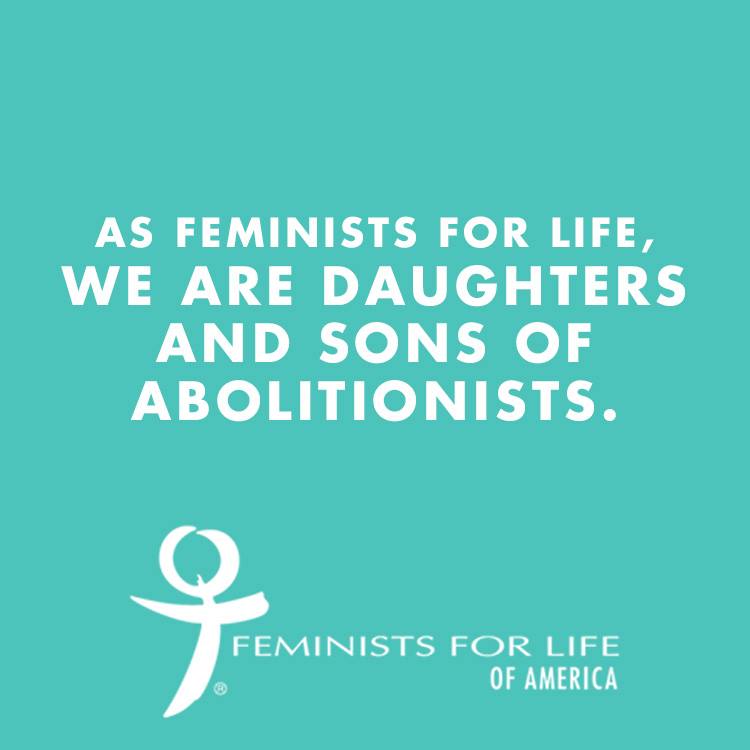Twin Movements: Women’s Rights, Civil Rights…
This Black History Month is important to me as a feminist, as a white woman, and as a mother of a biracial child. No matter your race, gender, ethnicity, political party, or religion, I hope it is to you, too.
Our early American foremothers reminded us that many social injustices are intricately linked. FFL President Serrin Foster reminds us, “As feminists, we are daughters and sons of abolitionists. The twin movements of suffrage and abolition resurfaced as the women’s rights and civil rights movements in the ’60s and ’70s.” Racism and abortion have, unfortunately, gone hand in hand with poverty and eugenics for generations. Feminists for Life is helping raise expectations at all levels.
Abortion rates among black and Hispanic women have been statistically higher than those of their white counterparts. Poverty and lack of access to health care, especially in rural areas, plays a big role here. Women of color are more likely to experience lower maternal health rates and be at higher risk for lack of resources and support, and therefore be more at risk for abortion. (See our upcoming issue of The American Feminist, titled “Breaking Barriers,” for much more on this!)
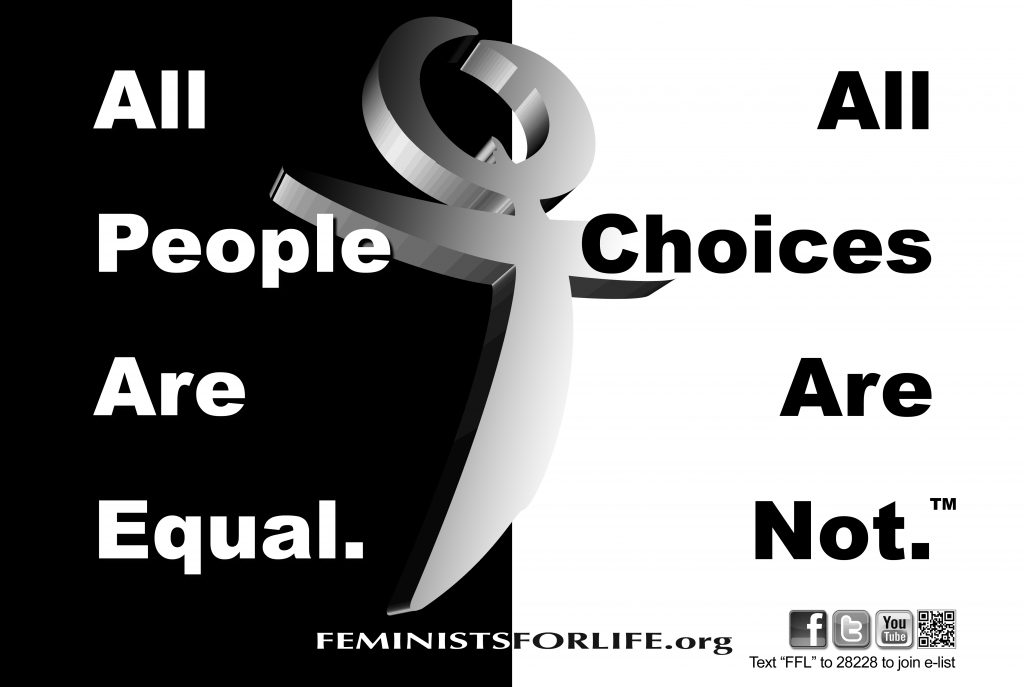
Every year in February, we celebrate Black History Month, followed by Women’s History Month in March. As FFL President Serrin Foster declared, “All people are equal. All choices are not.” As Feminists for Life, we fight for equality and justice for all. While taking time out of the year to specifically focus on African Americans and women is a start, it should also encourage us to include everyone in our history and activism year-round!
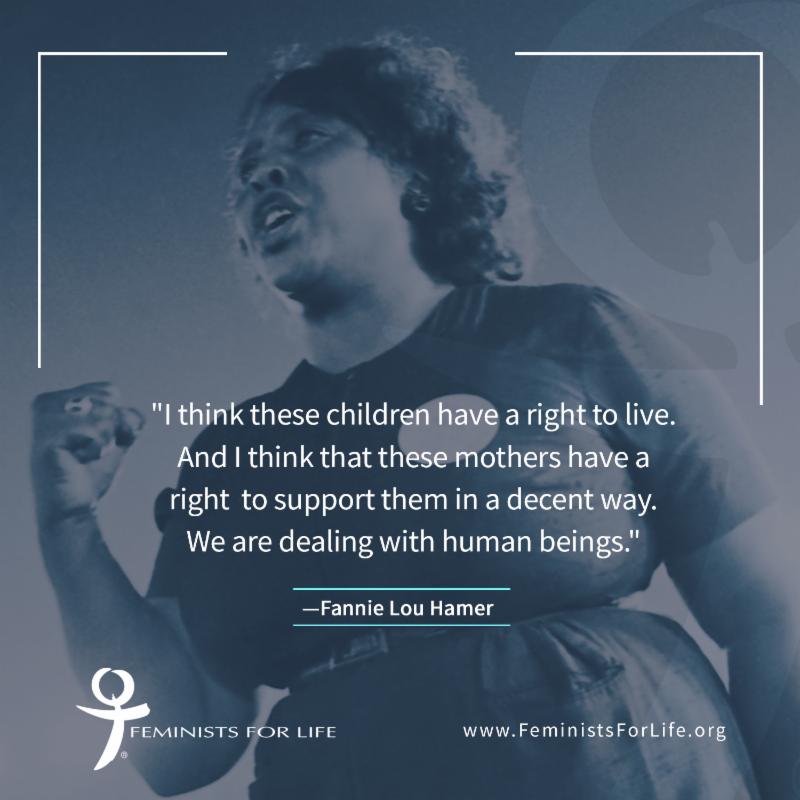
As the struggle for racial justice continues on, we can begin by first listening to voices not often recognized, such as pro-life feminist Fannie Lou Hamer, who also pointed out racial injustices and who fought to have real needs met in poor communities, instead of just offering abortion or birth control.
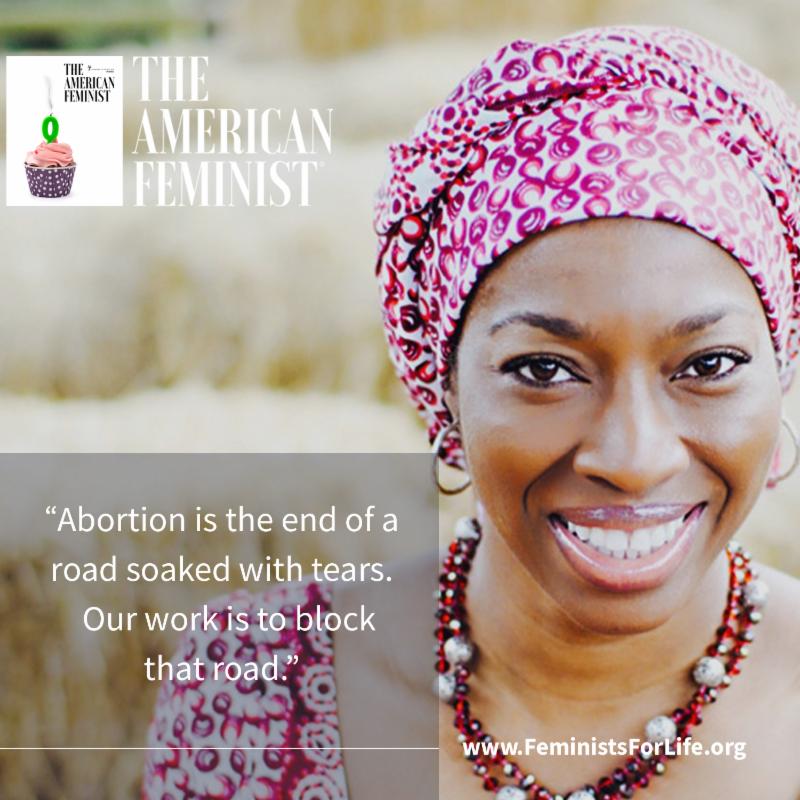
I recently had the honor of speaking with Nigerian pro-life activist Obianuju “Uju” Ekeocha, author of Target Africa, to discuss what she calls the “ideological colonization” of Africa by Western powers, which cloak abortion as “women’s empowerment,” for our timely issue of The American Feminist, “Abortion: Nothing to Celebrate“
“What I want to say [to abortion advocates] is you are so sensitive about racial injustice, what has been done to you, but cannot see that abortion is the killing of a future generation. It’s self-care to self-destruct your future? This is where the African Americans are now? Africans would be horrified to see the reality of this and saddened. Abortion is the end of a road soaked with tears. Our work is to block that road.”
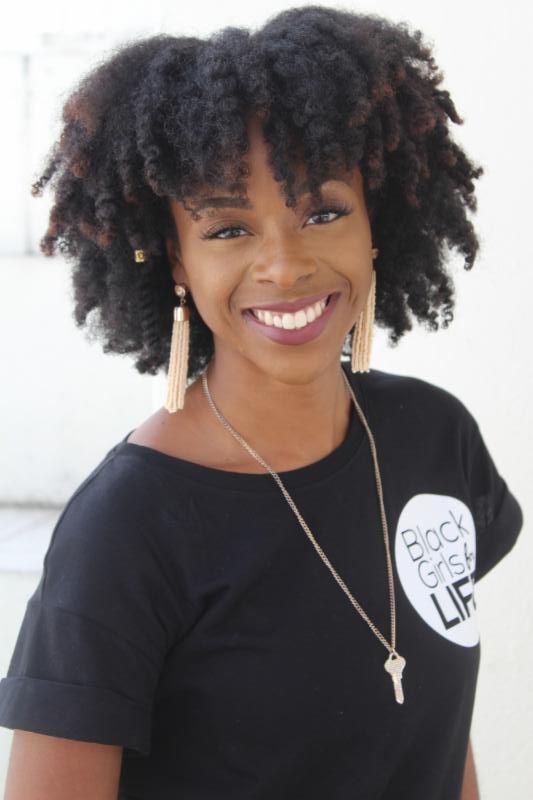
Also in this issue, Genecia Davis, founder of Black Girls for Life, sat down with Tatiana Federoff for a revealing and insightful look at pro-life outreach from the perspective of a post-abortive African-American woman:
“I do not know what it’s like to find a cure to the deadliest disease, nor can I feel the rush and relief of rescuing a baby from a burning home. I may never be a scientist or a firefighter, but I do give a voice to those thinking abortion is their only option or that there is no hope.”
(To receive this gripping issue, as well as “Breaking Barriers,” join or renew with FFL today!)
My journey as an ally for racial justice solidified while raising a biracial child. Check out Women Deserve Better to read some insights about what I learned.
This April is Sexual Assault Awareness Month. Part of my life story is detailed in “Victory Over Violence,” where I discuss becoming pregnant after rape and not knowing who the father was.
As Feminists for Life, we celebrate all of these months because we celebrate every human life, without exception. March forth.
Because women deserve better,
Joyce McCauley-Benner
Speaker
Feminists for Life of America
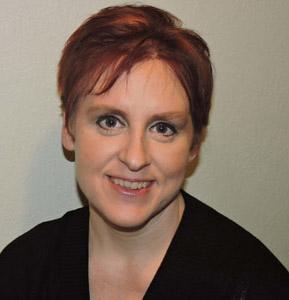
Joyce McCauley-Benner presents “Slaves Among Us: Sex Trafficking in the U.S.” and also “Victory Over Violence,” her personal story. For the past 15-plus years, Joyce has worked as an advocate for vulnerable populations, including sex trafficking victims, domestic violence victims, and low-income families. While working with those populations, she was a case manager, researcher, and legal advocate. She is a frequent contributor to FFL’s magazine, The American Feminist, and has addressed poverty, violence, and exploitation during her presentations on campus, on Capitol Hill, and at international conferences.
To book Joyce for your next event, please contact info@feministsforlife.org.





